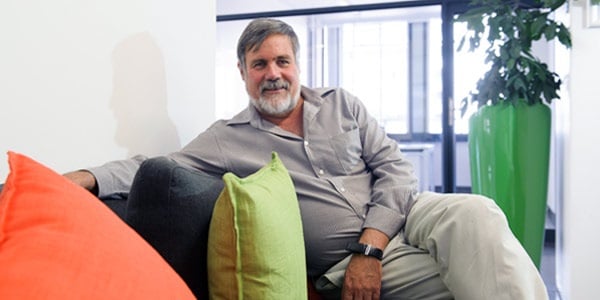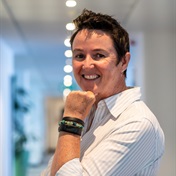
His work - and that of the students he has trained, the colleagues he has mentored, and the many journalists he has engaged with - arms us with the knowledge to act and create a better world for everyone. Even a world without him in it, writes science journalist Sarah Wild.
Prof Bob Scholes was a rare breed of scientist.
In modern science and academia, there is a push to specialise, to become an expert on a plant, an ecosystem, a type of star. But Bob was a generalist, who you could speak to about topics ranging from the carbon uptake of spekboom to different energy technologies. His understanding and interests were so deep and vast that it seemed as though he was actually a specialist in all of those fields.
In that, I guess, he mirrored his subject matter. Bob, who died last week while hiking in Namibia, was a professor of systems ecology at Wits University, and director of the university's Global Change Institute. Systems ecology takes an holistic view of the Earth's ecosystems, aware of their complexity and how they are all interconnected.
Many will remember him for his academic contributions (he was a prolific and internationally recognised expert), his role as a lead author on a number of Intergovernmental Panel on Climate Change assessment reports, and his support to government policy making. In 1995, Bob developed South Africa's first greenhouse gas inventory - one of the many small and important steps taken by him and others around the world that woke people up to the threat of climate change.
Generous with his time
The world is definitely poorer to have lost such a magnificent scholar. It has also lost a kind person who touched many lives. For more than a decade, Bob had been taking my calls. He was always generous with his time and expertise, but also sometimes shockingly blunt. If you had a climate change or biodiversity question - be it about science or policy - he was willing to take the time to speak to you about it. But the danger was that you never really knew what to expect.
You didn't go to Bob to have someone pander to your ego. "Well," he once said to me, "that's just nonsense". He pushed me to be better - to do better research, to question more, and occasionally to write better.
READ | OBITUARY | Wits Professor Bob Scholes: 'A giant in the field of climate science'
I was shocked and saddened when I heard about his death. It seemed impossible that he was not on the other end of the phone, that someone that passionate and gifted and generous was simply not there anymore.
Understood the need to communicate
Bob, more than any academic I know, understood that we need to communicate science if we hope to fight climate change, if we hope to save our planet and natural world. He also knew that science communication is a relationship between journalists and academics and that we need each other if we hope to bring new information to people, to be accurate, to fight misinformation, to make the world a better place.
And that, perhaps, is the thing I will remember Bob for the most. He always had hope - and not an ephemeral insubstantial hope, but one that grew out of tangible action.
Earlier this year, in a TED talk, he challenged people to adopt a piece of land, whether little or big, and become its custodian, to care for it and love it. You don't have to own the land, he said, to love it.
His work - and that of the students he has trained, the colleagues he has mentored, and the many journalists he has engaged with - arms us with the knowledge to act and create a better world for everyone. Even a world without him in it.
He is survived by his wife Professor Mary Scholes and his son.
- Sarah Wild is a science journalist. You can follow her on Twitter @sarahemilywild




 Publications
Publications
 Partners
Partners
























